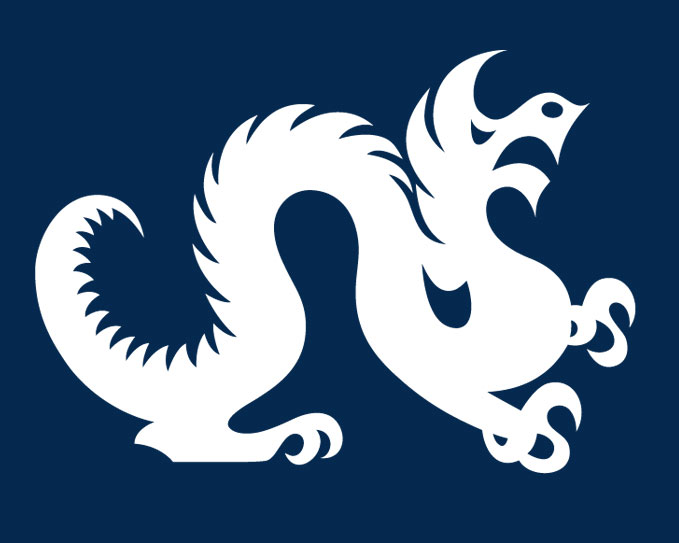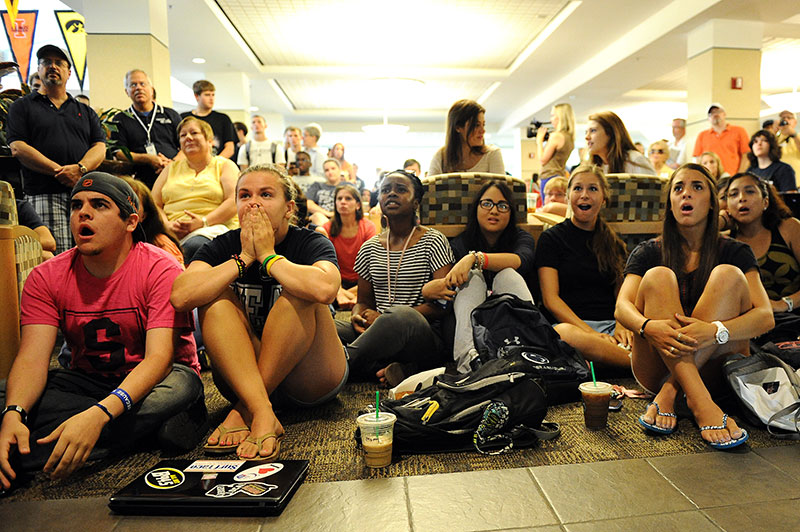The Jerry Sandusky sex abuse scandal at Penn State has done more than nearly bring down one of college football’s most successful programs.
It has also led many to question whether big-time college sports have grown too powerful, whether colleges spend too much time and too much money in pursuit of athletic success, and whether the massive amounts of money tied up in major college sports has compromised the mission of the modern university.
These are important questions, and Ellen Staurowsky, a professor in the department of sport management in the Goodwin College of Professional Studies, agrees that they must be answered. But to hear Staurowsky tell it, the Penn State situation—and more specifically, the way the Penn State situation was handled by the NCAA, which levied historically harsh penalties against the school in August—raises serious questions about the governance of college athletics, as well.
Staurowsky, a longtime critic of the NCAA, spoke with Drexel Magazine about the sad Penn State mess—and what its aftermath means for other colleges and universities—late this summer.
Were you surprised by the severity of the sanctions against Penn State?
Nothing really surprises me anymore in terms of how the NCAA operates. I think the NCAA is a creature of the moment in terms of how it presents its authority and its power to act. But while it didn’t surprise me, I do believe that the NCAA very much overreached its authority in terms of the sanctions they meted out to Penn State.
Some have said that the NCAA’s actions here—levying penalties related to criminal offenses, rather than issues under its purview—has set a dangerous new precedent. Do you agree?
Yes, they very much did. Essentially, they’ve entered new territory here. For example, there was a news item [recently] about a former football coach at Georgia who is alleged to have engaged in a Ponzi scheme. That’s clearly an illegal act that has the potential to have terrible implications in terms of the investors who went along with it. So if the NCAA is going to intercede in the Penn State matter, because of the grievous nature of that [situation], then does that also obligate them to get involved every time a public figure associated with a college sports program is engaged in criminal activity? I think this does open the door for that very, very large problem. I also think the fact that they subverted their own internal review mechanism is particularly troubling. And whether or not college insiders will say it, I know there has been a great concern over the past two years about that very matter.
Why do you think the NCAA acted so strongly against Penn State?
In my mind, part of the reason why the NCAA leadership came out blazing the way they did against Penn State was because the last thing they want is a mass movement of people rising up and asking, ‘What is happening at all of these schools?’ Part of what they did was the idea that the best defense is a good offense. By blitzing forward with these indefensible sanctions, they provided the media beast with many things to talk about. But the one thing they didn’t give the media to talk about is that question—‘If this was happening at the best school in the country [for compliance], then what on earth is happening elsewhere?’
You said earlier that the NCAA overreached with these penalties. Why do you say that?
It did seem as though public opinion was strongly in favor of very strong punishment here. They penalized a bunch of young men who were not even in the program when this happened. They penalized a coach who was not in the program when this happened. The rationale was that the ‘culture’ needed to change. But on the other hand, true educators know that you don’t penalize the next generation for something they didn’t know anything about … I would like to think that college and university presidents would have the capacity for discerning when public opinion should dictate certain actions, and when it shouldn’t.
With all the disruptions going on and a new coach coming in, and this program trying to play at the very highest levels of the game, the idea that of the NCAA putting young men in harm’s way is deeply troubling. What’s going to happen when the first key player gets nailed, or after Penn State gets beat up after the first couple of games and the depth chart isn’t deep enough? It would not surprise me if we got a lawsuit from a player accusing the NCAA of placing them in danger.
How would you have preferred that the NCAA handle this?
Surrounding much of the dialogue about Penn State and the idea that Penn State needed to be punished were many references to SMU [which received the so-called death penalty in 1986 for a scandal involving illegal payments to players]. But that was the fatal flaw in my mind. Because Penn State is Penn State, not SMU. This was an issue about the sexual abuse of boys by a serial predator who was enabled to do what he did, and all of that is heinous and awful, but the question becomes whether it was really the NCAA’s territory for punishing the institution here. I would argue that they had a few mechanisms to do it [correctly], with institutional censure being one of them, but they erred when they even entertained the idea that providing extra benefits to players [like what happened at SMU] was at all similar to what happened at Penn State. And I think the other area of vulnerability for the NCAA is the fact that they used the Freeh Report, which indicates that there were not sufficient athletic compliance mechanisms in place at Penn State. Well, if that’s the case, then that’s an indictment of the NCAA, because in 1998 and again in 2008 the NCAA did review the Penn State program in accordance with the certification review process, [and Penn State passed]. So, for the NCAA to turn around and say that part of this issue was a lack of institutional control, well, it was the responsibility of the of the NCAA to ensure that all reporting mechanisms were healthy and strong. To lay all of the blame on Penn State exempts them from admitting that their own processes failed.
Some have called Emmert hypocritical for his words and actions related to Penn State—particularly his assertion that Penn State failed to achieve a proper balance between athletics and academics. Is that fair?
Yes, because instead of making discerning judgments in a way that is consistent with educational practice, the NCAA has just continued to move ahead, with, for instance, these huge television contracts. On top of it all, they can’t afford anymore not to. They’ve grown these huge athletics infrastructures, so they can’t afford anymore not to pursue those big dollars. Otherwise you’ll just have these huge cavernous empty stadiums. Which is a glaring testament to the fact that they didn’t handle this right—they really have created a royal mess for themselves.
What is the big lesson you hope college athletics takes away from this scandal?
What everyone at every institution needs to be thinking about is, “It can happen here.” Now, the longer I live, the less I like being right about that. I’m not rooting for it to happen. But at this point, you can almost set your watch to it. I remember speaking with the former president of a Division I university about how difficult it was to maintain “true North” when trying to compete in the stratosphere of big time college basketball. He spoke a lot about the pressures of what that stratosphere did, and he’s one of the few who speak about these things so candidly. But if you can’t acknowledge that those pressures exist, it becomes more difficult to figure out how to handle them.




